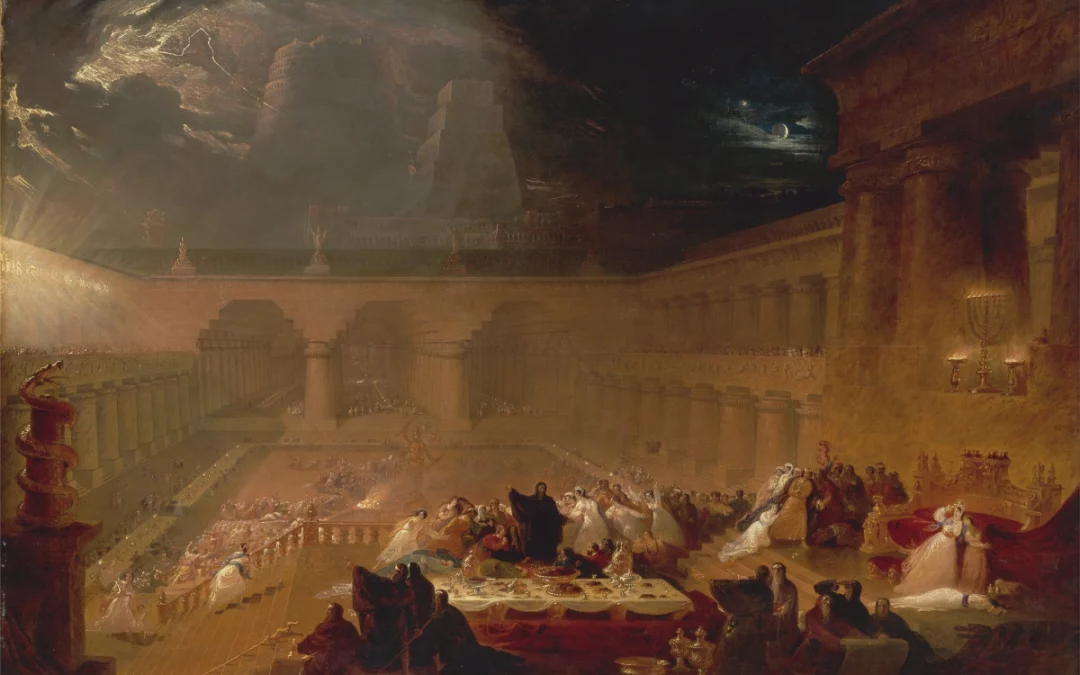Sola Scriptura or biblicism? Are they different? Are they the same thing? Given the recent uptick in biblicist lingo, these questions and many more may be living in your head. In this article, I will attempt to untangle some confusion. But I make no guarantees (emphasis on the word “attempt”). This conversation is at least half a decade old, and throughout its course has become extremely convoluted. On the one hand, some want to identify sola Scriptura with biblicism as if they are synonymous. On the other hand, some (like myself) resist the term biblicism because of the connotations it tends to carry. The normal definition of biblicism seems to denote association with heretics and their approach to the Bible. Arius, Audius, and Socinus are three such examples.
The purpose of this article is threefold. First, I contend that sola Scriptura and biblicism are entirely different from one another in form and matter. Sola Scriptura is a principle, biblicism is a mode or manner of biblical interaction. Second, I endeavor to show that the classical definition of sola Scriptura includes the use of subordinate authorities (norma normata or testes veritatis), the lot of which biblicists tend to resist in various ways and to different extents. Third, it is necessary to show how Scripture itself makes subordinate authorities ordinarily necessary in both the individual and ecclesial Christian life.
Sola Scriptura & Biblicism: What’s the Difference?
Richard Muller, in his Dictionary of Latin and Greek Theological Terms, defines sola Scriptura as “the principium cognoscendi, the principle of knowledge or cognitive foundation of theology, and described doctrinally in terms of its authority, clarity, and sufficiency in all matters of faith and morals.”[1] And the Second London Baptist Confession reads, “The Holy Scripture is the only sufficient, certain, and infallible rule of all saving knowledge, faith, and obedience, although the light of nature, and the works of creation and providence do so far manifest the goodness, wisdom, and power of God, as to leave men inexcusable; yet are they not sufficient to give that knowledge of God and his will which is necessary unto salvation.” (1.1)
These statements adequately portray the Reformational sentiment behind sola Scriptura.[2] Scripture is the highest authority and it is sufficient in all matters of faith and life. Dr. James Renihan summarizes the first portion of Confession 1.1 as follows, “The Holy Scripture is the only certain rule of all saving faith…”[3] Scripture is the principle of all saving knowledge. Apart from it, we could not know God as triune, Christ the Redeemer, justification by faith alone, or the institution of Christ’s church and churchly ordinances. We must understand the purpose of Scripture if we are to maintain its integrity. We do not want to under-realize Scripture, but we also do not want to over-realize Scripture. Both extremes represent Scriptural abuses. Scripture must be thought of and used according to Scripture’s own terms.
In neither statement above is Scripture described as the only authority. 2LBCF 1.1 mentions three other cognitive authorities in the very first sentence, “the light of nature, and the works of creation and providence…” The text the framers cite in support of this phrase is Romans 1:19-21, “For since the creation of the world His invisible attributes are clearly seen, being understood by the things that are made, even His eternal power and Godhead, so that they are without excuse…” Scripture further sanctions subordinate authorities in other places, the least of which is not the Proverbs, “Where there is no counsel, the people fall; But in the multitude of counselors there is safety.” (Prov. 11:14)
The principle of sola Scriptura, therefore, presupposes secondary authorities. Even the anchor text typically employed in defense of sola Scriptura assumes the usage of secondary authorities. In 2 Timothy 3:16-17, we read, “All Scripture is given by inspiration of God, and is profitable for doctrine, for reproof, for correction, for instruction in righteousness, that the man of God may be complete, thoroughly equipped for every good work.” The “man of God” is a type of secondary authority, commissioned to teach others, being himself subject to the Word of God. Preaching, teaching, creeds, confessions, commentaries, and other theological helps are all instances of secondary authorities because neither are themselves Scripture, though they transmit Scriptural meaning for the influence and edification of the church.
In all this, we affirm with the Confession that the Scripture is the only infallible interpreter of Scripture, “The infallible rule of interpretation of Scripture is the Scripture itself; and therefore when there is a question about the true and full sense of any Scripture (which is not manifold, but one), it must be searched by other places that speak more clearly.” (1.9) But also, those areas which seem less clear are to be discovered through the use of “ordinary means,” i.e. subordinate authorities, “All things in Scripture are not alike plain in themselves, nor alike clear unto all; yet those things which are necessary to be known, believed and observed for salvation, are so clearly propounded and opened in some place of Scripture or other, that not only the learned, but the unlearned, in a due use of ordinary means, may attain to a sufficient understanding of them.” (1.7)
On the other hand, Biblicism is an ever-shifting target. In recent times, it has been co-opted by well-meaning Christians in an effort to stave off what they perceive to be unbiblical accretions. In this case, I would stand with them but would abstain from using the term biblicist for reasons that should become clear in a moment. But even within this group, there are subgroups that apply biblicism to themselves in different ways. The term is also applied to the modern fundamentalists who outrightly deny the use of extra-biblical means in the pursuit of biblical truth, i.e. subordinate authorities. A strand of this kind of biblicism runs through IFB and Pentecostal circles. But it has also appeared more recently in self-professed Reformed Baptist ranks, particularly among those that affirm some kind of subordinationism in the Godhead.
The term “biblicist” or “biblicism” evidently first appeared in the 19th century, notably used by Jon Jacob van Oosterzees and Thomas Carlyle. Both men apparently use the term derogatorily. Oosterzees defines it as “idolatry of the letter,” in his Dogmatics.[4] Carlyle uses the term in passing, either to characterize those opposed to England’s Lord Protector in the 1650s or the opposition to the crown during the 1640s.
Biblicism was considered “idolatry of the letter” because it would tend to treat Scripture as any other document to the practical exclusion of the Holy Spirit and other metaphysical considerations. Biblicism tends to subject Scripture to the tools of literary science that it be interpreted as one might interpret Homer’s Iliad. Meaning is flattened into the purely etymological sense of the terminology as apprehended through the uncertain intentions of biblical human authorship, the understanding of the human audience, their historical context, and what the latest archeology might be able to tell us about the land, language, and loves of the culture. Modern mantras such as “No creed but the Bible” are examples of biblicism. Ironically, modern archeological or textual research is welcomed into the picture of biblical knowledge if it befits a favored doctrinal position. But Christian history is taken much less seriously.
There is usually no consideration of the fuller sense of the text nor any felt need to hold the individual Bible reader accountable to orthodox interpretational norms. Indeed, in its harsher forms, biblicism seems not to observe a standard orthodoxy at all. Every confession is a wax nose, and truth as we know it is in a constant state of flux.
More contemporarily, Christian Smith outlines the core beliefs of biblicism. While I wouldn’t necessarily endorse Smith’s book, I do think the following list accurately describes some tendencies in contemporary biblical hermeneutics. Beliefs 4-6 are most relevant to the subject matter of this article. They are listed as follows:
4. Democratic Perspicuity: Any reasonably intelligent person can read the Bible in his or her own language and correctly understand the plain meaning of the text.
5. Commonsense Hermeneutics: The best way to understand biblical texts is by reading them in their explicit, plain, most obvious, literal sense, as the author intended them at face value, which may or may not involve taking into account their literary, cultural, and historical contexts.
6. Solo Scriptura: The significance of any given biblical text can be understood without reliance on creeds, confessions, historical church traditions, or other forms of larger theological hermeneutical frameworks, such that theological formulations can be built up directly out of the Bible from scratch.[5]
Note, (4) opens the understanding to anyone and everyone, not simply the regenerate. They need only be a “reasonably intelligent person.” Hence, the project of reading and contemplating Scripture is practically identical to reading and contemplating any book. It is spiritually indifferent. Its truth is apprehended by the mere application of the literary-scientific tools of textual interpretation. The presence of the Holy Spirit, Christian virtue, and other Christian voices seem entirely irrelevant to the task of understanding Scripture. According to (5) deriving the meaning of the text depends upon our access to the circumstantial data of the human author, their intentions, and the interpretive tendency of their historically conditioned human audience. It would be nigh impossible for a child to understand Scripture truly without all of this background information. And in (6) solo Scriptura rather than sola Scriptura is observed to be a biblicist distinctive, meaning the Bible reader is without the need for any kind of supplement. All they need is themselves and their Bible.
To summarize this section: classically conceived, sola Scriptura presupposes secondary authorities or helps by which we are led to better understand Scripture. Scripture itself represents subordinate authorities as being in some sense necessary for each believer. Ordinarily, no believer can go it alone. Biblicism, on the other hand, in its softer form, could take or leave secondary authorities. In its harsher expression, it attempts a removal of secondary authorities altogether, including the growth of the church’s collective theological knowledge derived from the Scriptures over the past two millennia.
Sola Scriptura is the affirmation of the principle of saving faith, or true knowledge of God unto salvation, i.e. principium cognoscendi. Biblicism is an interpretive approach to the text of Scripture that emphasizes the individual Bible reader, usually to the exclusion of any meaningful interaction with secondary authorities. Sola Scriptura is not a hermeneutic, but a principle preceding our hermeneutics. Biblicism is a hermeneutic without any meaningful principles preceding it. Though some biblicists may claim to have antecedent principles to biblical interpretation, they are unable to justify those principles from the text which, on biblicist grounds, creates a blatant logical inconsistency.
The Nature of Secondary Authorities (Norma Normata or Testes Veritatis)
Included within the Protestant orthodox doctrine of sola Scriptura is the correct placement and use of tradition and with it all subordinate authoritative mediums. Far from denying or suppressing the reality of tradition or subordinate authoritative influence and teaching tools as biblicism tends to do, sola Scripture recognizes the need for secondary authorities as prescribed in the Scriptures themselves. At a minimum, man must assume the reliability of his own sense perception and the laws of logic. But he ordinarily assumes the credibility of his Bible translation, the existence of God, and so on. He assumes these things prior to ever approaching the text.
What is more, man is in need of other Christians, past and present, as interpretive helps. An individual man cannot hope to comprehend the “width and length and depth and height” of biblical truth apart from “all the saints.” (Eph. 3:18) The Holy Spirit works in individuals, but He also works in more than one individual. He has worked, does works, and will work through all His people. For this reason, God’s people are better together. That is, they are better when the faith of the many is allowed to strengthen the faith of the one. This happens most obviously and immediately in local churches but also at a grander level.
Each individual local church must be found in common with those local churches that have preceded it in the truth of the Christian faith. Though some things will differ as to practice, every true church worships the same God—Father, Son, and Holy Spirit; they confess the same Word of God; they believe in the same incarnation and virgin birth; they confess the same gospel, and so on. Each local church must labor to show itself within that stream of Christian orthodoxy. Furthermore, if a church claims to be Reformed Baptist or Particular Baptist, it must find itself within the definitive stream of that peculiar tradition. It is fine if a church, by conviction, chooses not to be Reformed Baptist, but it can by no means claim the term “Reformed Baptist” unless it finds itself in the stream of Reformed Baptist orthodoxy set forth in the Confession.
However useful these secondary authorities are, we must make an important twofold qualification. First, these secondary authorities are subject to the text of Holy Writ. They can never rise to equality with or superiority to the Word of God. Second, these subordinate authorities do not reveal or proclaim anything substantially new in relation to what has already been revealed in Scripture. Secondary authorities merely help us understand and speak concerning that which is already there, i.e. “the faith which was once for all delivered to the saints,” through the Scriptures. (Jude 3) Secondary authorities are witnesses to the truth or testes veritatis.
Defining testes veritatis, Muller writes, “only the scriptural revelation can be the norm of doctrine, but the teachers and confessions of the church are aids in interpretation insofar as they are witnesses of the truth that manifests its presence and preservation in the life of the church.”[6] In his more expansive Post-Reformation Reformed Dogmatics, what Muller observes is worth quoting at some length:
Granting the origins of the Reformation understanding of the biblical norm in the late medieval debate over Scripture and tradition, specifically in the trajectory of understanding that Oberman identified as “Tradition I,” Reformation-era and Reformed orthodox exegetes came to the task of biblical interpretation not as isolated scholars confronting the text armed only with the tools given to them by Renaissance-era philology. They also assumed the importance of the voice of the church, particularly in interpretive conversation, both positive and negative, with the living exegetical tradition: exegetes were advised, in manuals of interpretation, to consult commentaries in the older tradition, not as authorities in the Romanist sense but as sound sources of advice and precedent.[7]
These secondary sources do not represent additions to special revelation. They are witnesses which help us to understand and explain special revelation. The Reformed hold that tradition is a witness-tradition. As Thomas Watson writes, concerning the difficulty of interpreting some parts of the Bible, “The church of God has appointed some to expound and interpret Scripture; therefore he has given gifts to men. The several pastors of churches, like bright constellations, give light to dark Scriptures. Mal ii 7. ‘The priest’s lips should keep knowledge, and they should seek the law at his mouth.’”[8] Regarding tradition, this is different from Rome’s position which thinks of tradition not only as an interpretive authority but as an authority bearing additional revelatory content alongside Scripture, e.g. saints, feast days, Apocryphal literature, etc.
Tradition I, which is the Reformational view of the witness-tradition, follows a doctrine of sola Scriptura which entails the proper use of secondary authorities. Not a single Christian today reads the autographa, the original manuscripts of the Holy Bible. Every Bible reader today relies on apographa (manuscript copies of the original) and there is a measure of trust in the textual transmission of God’s Word through means of the literary tradition. Hence, secondary authority is inescapable at a very fundamental level.
Furthermore, tradition serves as an “ordinary means” to increase our understanding of Scriptural meaning. The Confession 1.7 reads:
All things in Scripture are not alike plain in themselves, nor alike clear unto all; yet those things which are necessary to be known, believed and observed for salvation, are so clearly propounded and opened in some place of Scripture or other, that not only the learned, but the unlearned, in a due use of ordinary means, may attain to a sufficient understanding of them.
Francis Turretin gives us some more insight into 17th century intent concerning “ordinary means” in this respect. In asking the question of the perspicuity of Scripture unto salvation, Turretin qualifies the question when he writes:
The question does not concern the perspicuity which does not exclude the means necessary for interpretation (i.e., the internal light of the Spirit, attention of mind, the voice and ministry of the church, sermons and commentaries, prayer and watchfulness). For we hold these means not only to be useful, but also necessary ordinarily. We only wish to proscribe the darkness which would prevent the people from reading the Scriptures as hurtful and perilous and compel them to have recourse to tradition when they might rest in the Scriptures alone.[9]
These various means are ordinarily necessary not as alternatives to Scripture but as faithful witnesses to the true sense of Scripture. They are ordinarily necessary because without them the believer could not progress in Scriptural knowledge in accord with his calling to do so, i.e. comprehension of biblical truth in concert with all the saints. (Eph. 3:14-19) Of course, there are extraneous circumstances in which a believer may be isolated from these means and yet given the grace to persevere, but this is not the ordinary circumstance.
A Brief Exegetical Case for Secondary Authorities
All the above concerning secondary authorities arises from natural, historical, and biblical considerations. My concern here is the third—biblical considerations. Scripture obligates the individual believer to first find himself within a larger whole. (Prov. 11:14; Eph. 3:14-19) Second, Scripture asserts the Christian’s remaining sin nature in the strongest of terms, which should leave the Christian humble and needing help. (Rom. 3:23) Third, there is an emphasis placed upon doctrinal confession throughout the New Testament. (1 Tim. 6:12; Heb. 4:14; 10:23; 1 Jn. 4:15; 2 Jn. 7)
First, there is no such thing as an isolated Christian in ordinary circumstances. Those who are isolated typically fall. Proverbs 11:14 says, “Where there is no counsel, the people fall; But in the multitude of counselors there is safety.” In His high priestly prayer, our Lord prays for the unity of His body, “that they may be one as We are.” (Jn. 17:11) The apostle Paul makes it very clear that we are to admonish one another. In Romans 15:14, he writes, “Now I myself am confident concerning you, my brethren, that you also are full of goodness, filled with all knowledge, able also to admonish one another.” And in Colossians 3:16 he issues a similar statement, “Let the word of Christ dwell in you richly in all wisdom, teaching and admonishing one another in psalms and hymns and spiritual songs, singing with grace in your hearts to the Lord.” God’s people are not isolated individuals, but individuals in union with one another.
Second, every Christian has a remaining sin nature as is apparent from Paul’s words, “for all have sinned and fall short of the glory of God…” (Rom. 3:23) This is a text written to believers. The phrase “have sinned” is in the aorist tense, but the phrase “fall short” is in the present tense. On account of their sin, believers currently fall short of God’s glory. Furthermore, in 1 John 1:8, the apostle John declares the continuation of sin in the believer, “If we say that we have no sin, we deceive ourselves, and the truth is not in us.”
Since this is the case, we are obligated to submit ourselves to an accountability structure, the use of which prevents our sin from determining our theology and practice. This accountability structure entails the adherence to the wisdom of those who preceded us, “Do not remove the ancient landmark Which your fathers have set.” (Prov. 22:28) The “old paths,” after all, are “where the good way is.” (Jer. 6:16) It entails the brothers and sisters at our local churches. (Col. 3:16; Heb. 10:24-25) And it entails the pastor-teachers which our Lord has instituted for our good. (1 Tim. 3:1-7; Heb. 13:17) It furthermore includes some creedal expression, a summary of the faith, or confession. (Heb. 10:23)
Third, In Hebrews 4:14 we read, “Seeing then that we have a great High Priest who has passed through the heavens, Jesus the Son of God, let us hold fast our confession.” How do we “hold fast our confession”? What is the medium by which we do this? We do so through confessions of faith. Confessions of faith are necessary since many who claim the “Bible as their only creed” do so while preaching and teaching heretical beliefs. They are not held accountable to an accepted expression of what their church believes the Bible actually teaches. A confession is an articulation of what churches believe the Bible teaches. They are churchly documents used as a means to guard doctrine and distinguish the faith of the church from errors and aberrations.
Men and churches who claim the Bible as their only creed leave themselves and others open to error—not because of the Bible, but because of their own sinfulness. As a result, the Bible becomes whatever they deem it to be. The meaning of Scripture is but a wax nose, subject to the molding of the preacher who himself may do whatever he wants with the text. The apostle Peter spoke of this problem:
…and consider that the longsuffering of our Lord is salvation—as also our beloved brother Paul, according to the wisdom given to him, has written to you, as also in all his epistles, speaking in them of these things, in which are some things hard to understand, which untaught and unstable people twist to their own destruction, as they do also the rest of the Scriptures. (2 Pet. 3:15-16)
“Untaught and unstable” men are those who, through ignorance and weakness either unintentionally or intentionally twist the text of Scripture. Each Bible reader should humbly admit his weakness, and with a humble posture seek out ordinary means by which he might further his understanding of God’s Word. Confessionalism, therefore, works to guard the meaning of the text. This guardianship of biblical meaning is commanded by the apostle, “O Timothy! Guard what was committed to your trust, avoiding the profane and idle babblings and contradictions of what is falsely called knowledge…” (1 Tim. 6:20) Like Timothy, we ought to guard what has been committed to us in the Scriptures.
Conclusion
To conclude, the distinction between sola Scriptura and biblicism is this: sola Scriptura is the affirmation of the principle of saving faith, or true knowledge of God unto salvation, i.e. principium cognoscendi. Biblicism is an interpretive approach to the text of Scripture that emphasizes the individual Bible reader, usually to the exclusion of any meaningful interaction with secondary authorities. Sola Scriptura is not a hermeneutic, but a principle preceding our hermeneutics. Biblicism is a hermeneutic without any meaningful principles preceding it. Though some biblicists may claim to have antecedent principles to biblical interpretation, they are unable to justify those principles from the text which, on biblicist grounds, creates a blatant logical inconsistency.
Furthermore, the classical doctrine of sola Scriptura, especially as it’s informed by the text of Scripture itself, entails the use of secondary or subordinate authorities which witness to the truth or meaning of the text of Scripture, the testes veritatis. (See above) These secondary authorities are derivative, and they only expound and explain Scripture. They do not bear additional revelation as Roman Catholicism would have it. They are influences upon Christians from generation to generation in their pursuit of biblical truth. Furthermore, secondary authorities, while helpful in the task of interpretation, are not themselves the only infallible interpreters of Holy Scripture. Only Scripture may hold that position.
Biblicism, on the other hand, could either take or leave altogether these secondary authorities depending upon who one might ask. But this seems to ignore several natural, historical, and biblical considerations. Natural, because man is cognitively and ethically limited. Historical, because Christ’s bride has always stated her orthodoxy in terms of creeds and confessions, authored commentaries, and has transmitted the very Word of God itself through translation and preservation. Biblical, because Scripture itself authorizes secondary authorities like a multitude of counselors, pastor-teachers, fellow believers, the voices from the past, creeds, and confessions.
Biblicism misses out on the fullness of God’s Word and the fullness of the practical life instituted by God’s Word for the good of God’s people.
Resources:
[1] Richard Muller, Latin and Greek Dictionary of Theological Terms, (Grand Rapids, MI: Baker Academic, 2017), 338.
[2] The term sola Scriptura did not originate in the Reformation era, but appeared long before. (Cf. Renihan, To the Judicious and Impartial Reader, 59; Oberman, The Harvest of Medieval Theology, 365ff)
[3] James M. Renihan, To the Judicious and Impartial Reader, (Cape Coral, FL: Founders Press, 2022), 32.
[4] The Compact Edition of the Oxford English Dictionary, vol. I, (Oxford: Oxford University Press, 1971), 846.
[5] Smith, Christian. The Bible Made Impossible (pp. 4-5). Baker Publishing Group. Kindle Edition.
[6] Muller, Latin and Greek Dictionary of Theological Terms, 356.
[7] Richard Muller, Post-Reformation Reformed Dogmatics, vol. II, (Grand Rapids, MI: Baker Academic, 2003), 483.
[8] Thomas Watson, A Body of Divinity, (Carlisle, PA: Banner of Truth, 2015), 31.
[9] Francis Turretin, Institutes of Elenctic Theology, vol. I, (Phillipsburg, NJ: P & R Publishing, 1992), 144.






